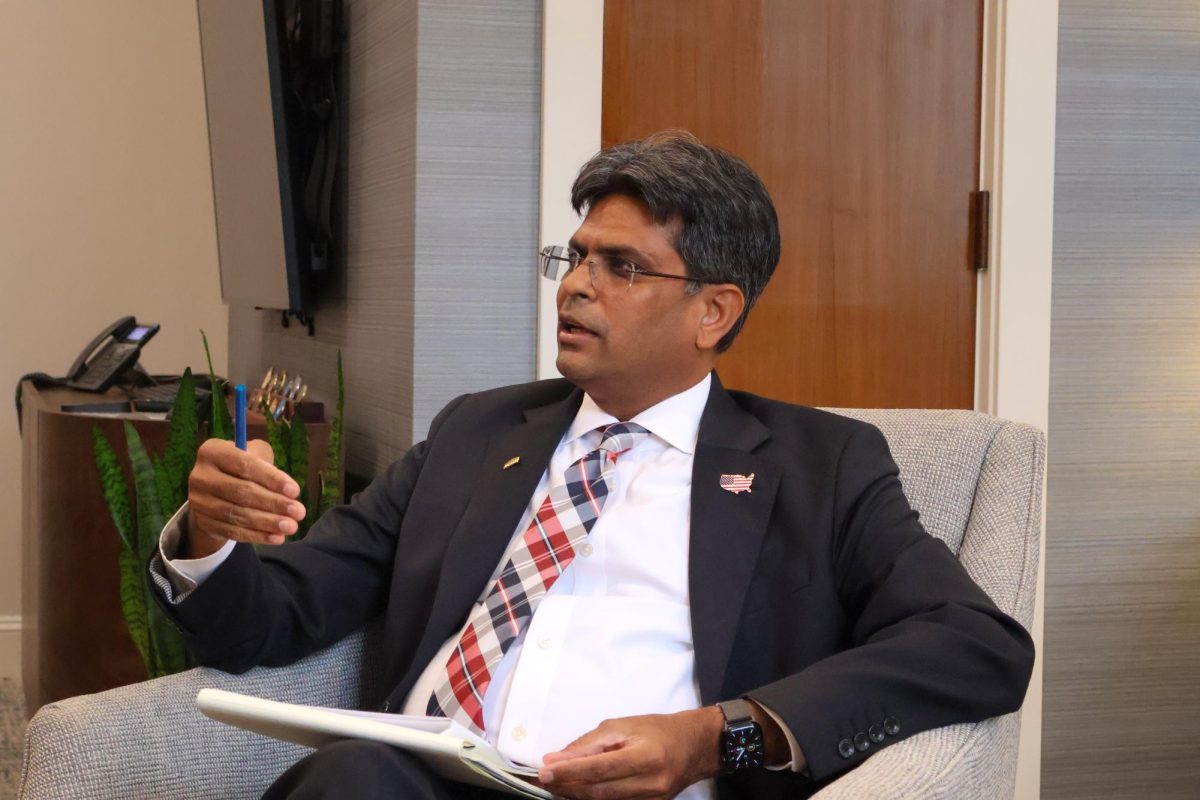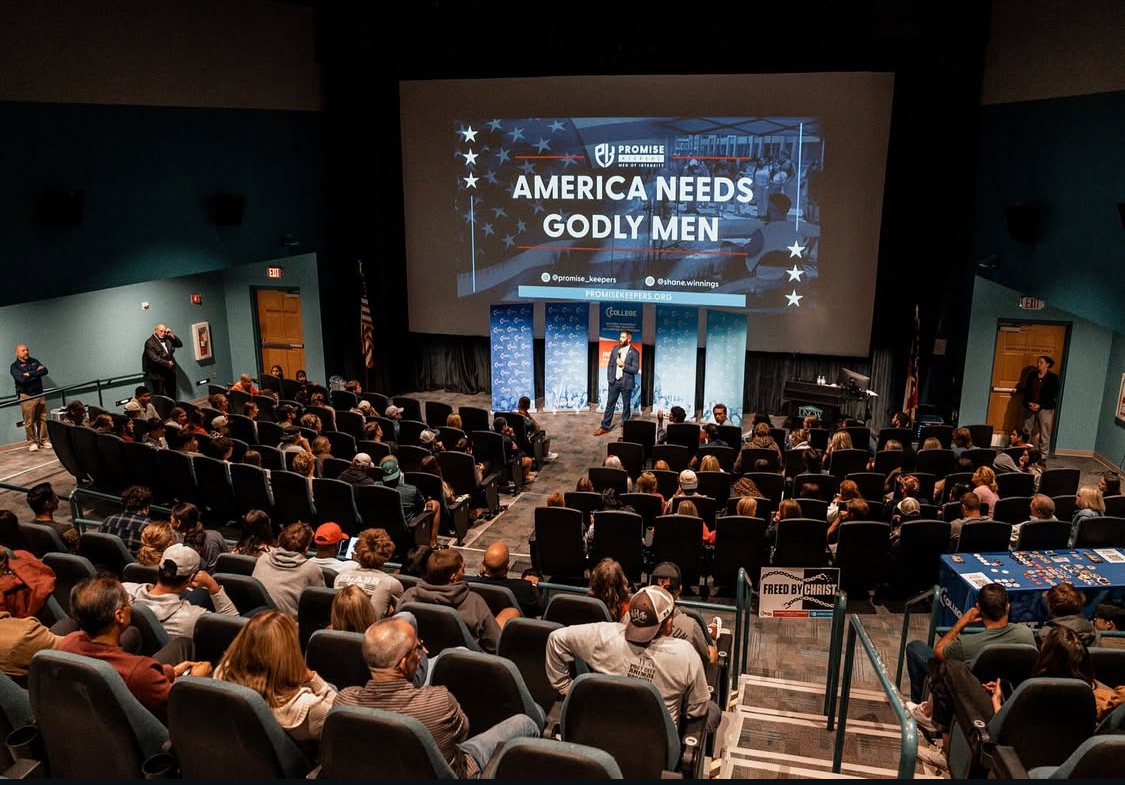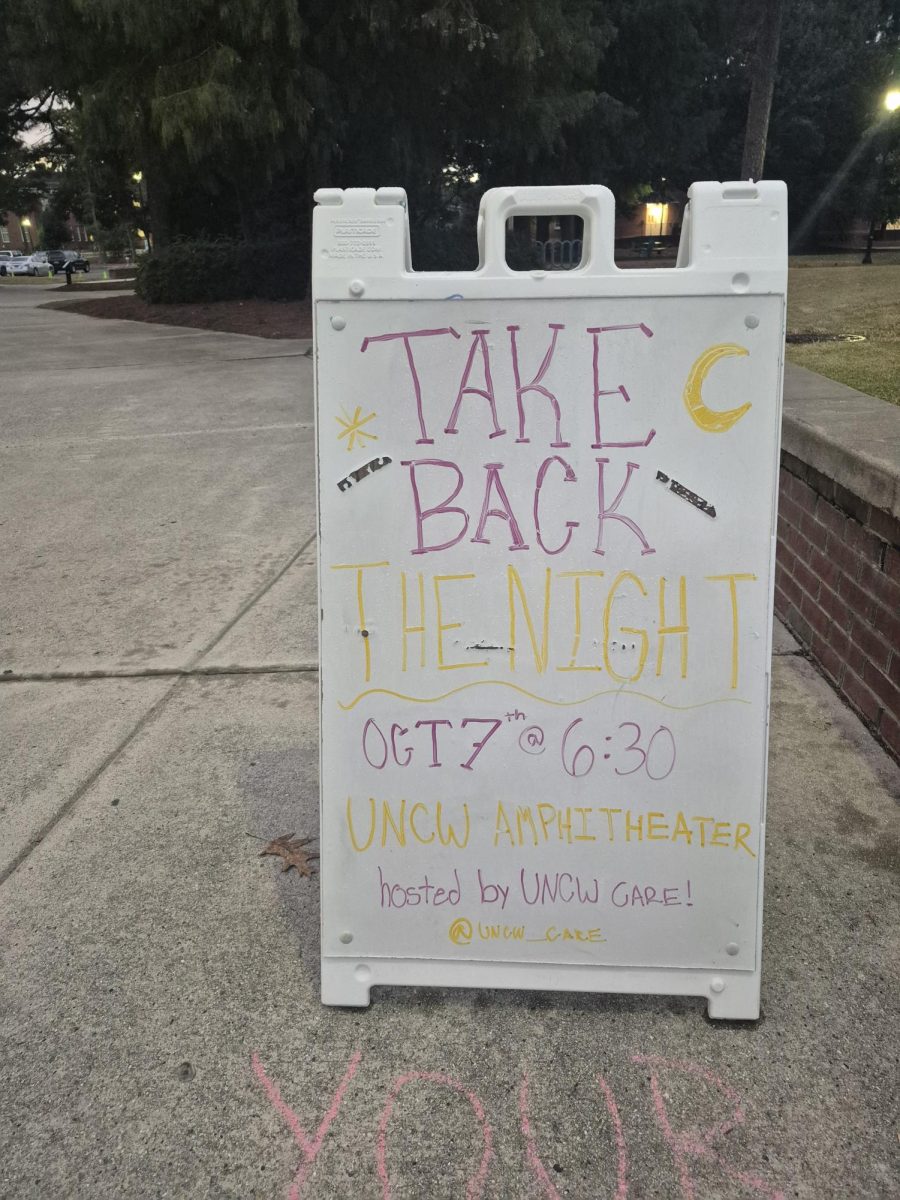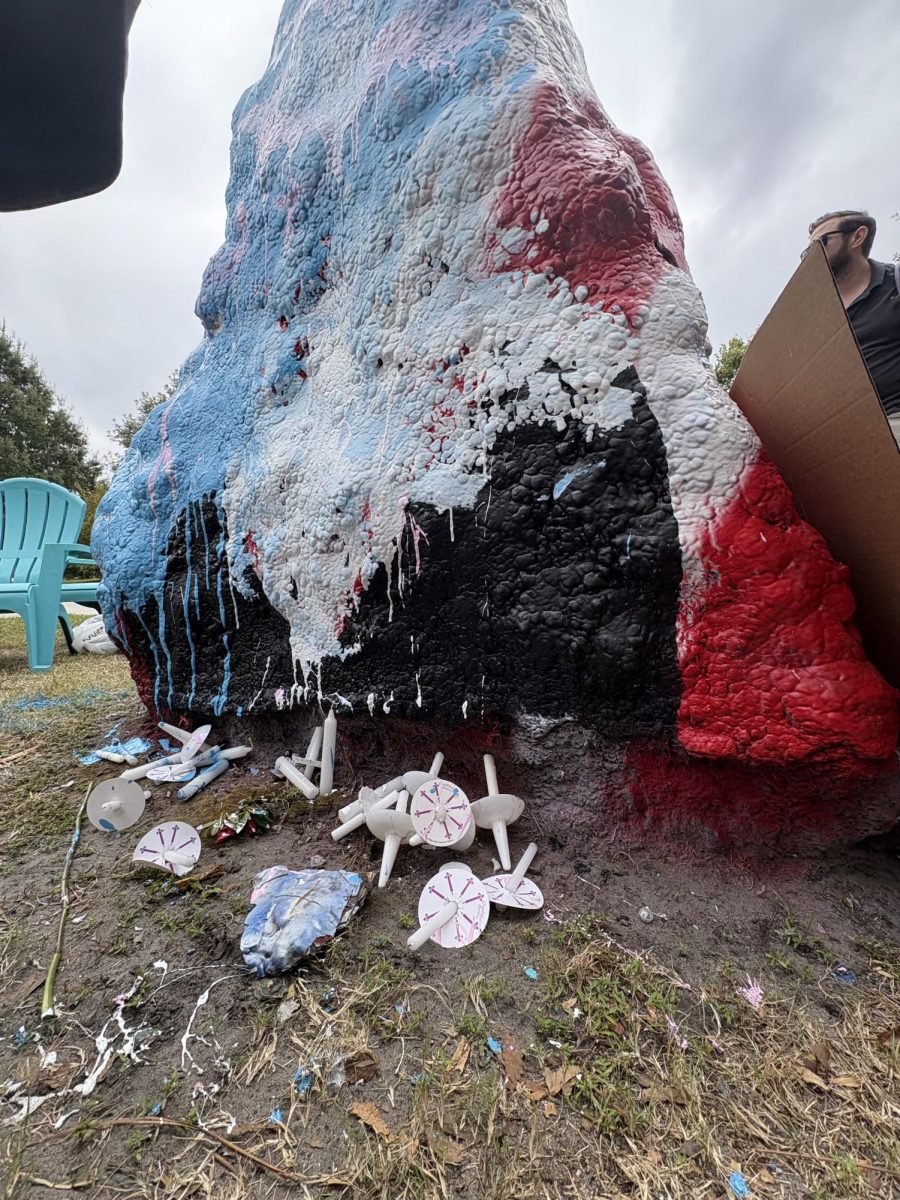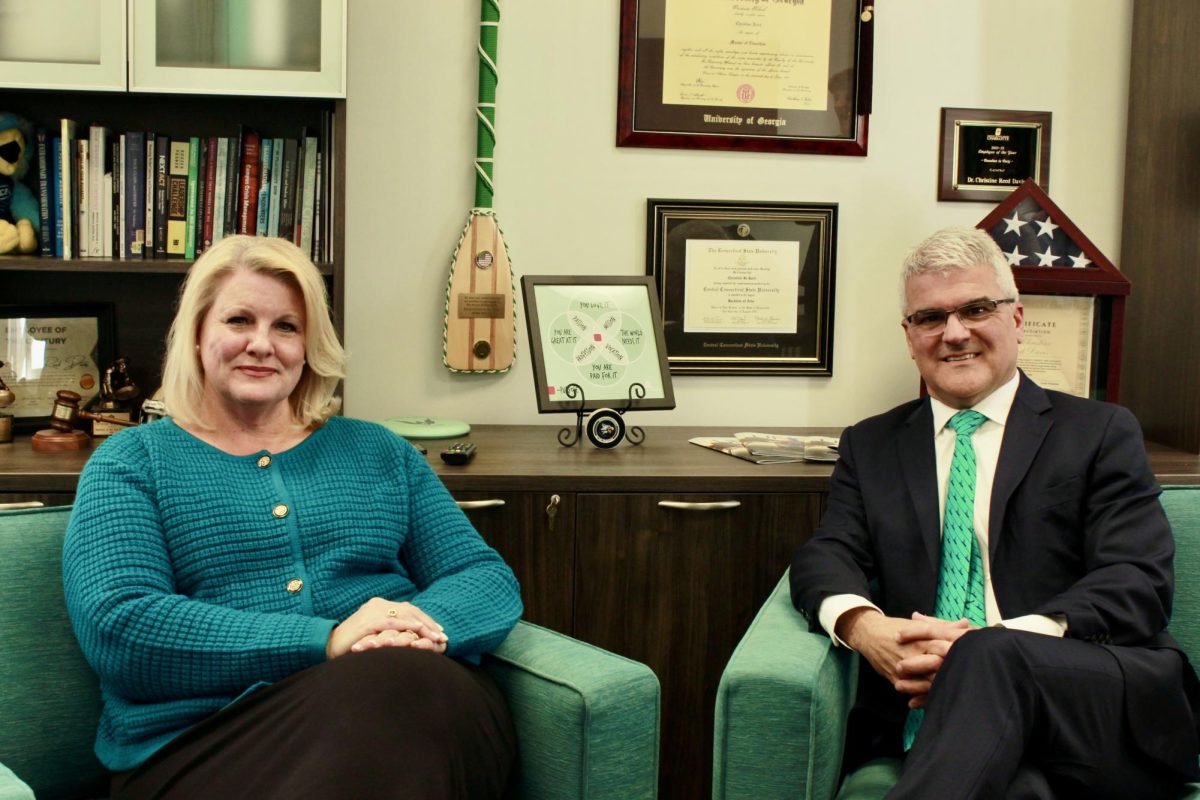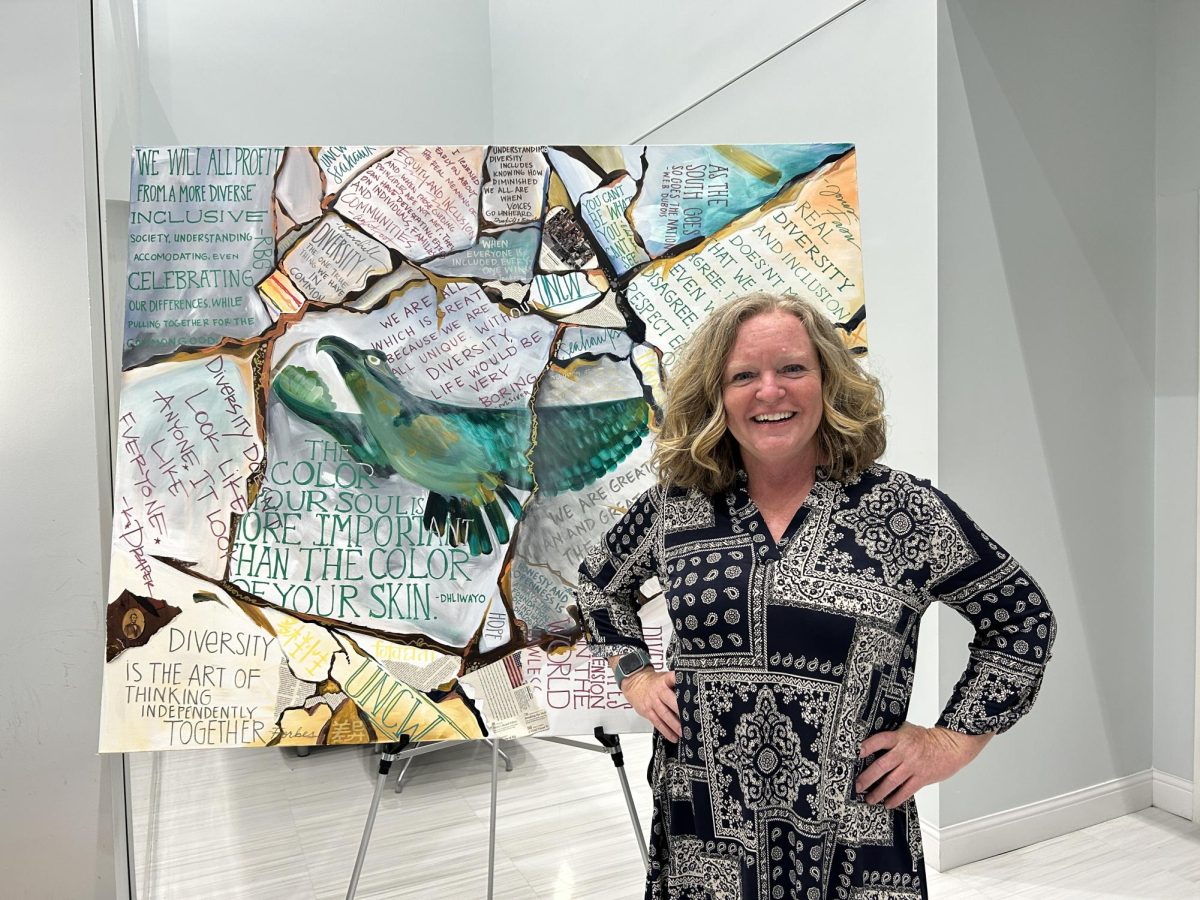When former Vice President Mike Pence steps onto the UNCW campus this October, his appearance is expected to do more than just fill seats. As part of the Chancellor’s “Dare to Learn” lecture series, Pence’s invitation has ignited a heated debate online about free speech, academic freedom and the university’s commitment to inclusivity and diversity.
Pence, who served as a congressman, governor and vice president, has long been a figure of public debate. Known for his conservative views, particularly on LGBTQ+ rights, his upcoming lecture has prompted mixed reactions from students. Some see the event as an opportunity to engage with a prominent political figure and learn from his leadership experiences. For others, it raises deeper questions about the university’s commitment to fostering an inclusive and respectful campus environment.
At a time when political polarization is at its peak, universities are increasingly tasked with navigating complex questions around free speech, intellectual diversity and student well-being.
In an exclusive interview, The Seahawk had the opportunity to sit down with Chancellor Aswani Volety on Sept. 11 to discuss the invitation. While acknowledging the divide, Volety emphasized that the invitation is part of a broader commitment to fostering free expression and dialogue.
Why Pence? The lecture series and its purpose
Volety explained that the “Dare to Learn” series strives to feature a diverse mix of leaders, from astronauts and ambassadors to political pundits and business leaders. He added, “Vice President Pence is one of many individuals that we bring in that have various things to offer,” pointing to past speakers such as astronaut Captain Scott Kelly and political figures Donna Brazile and Karl Rove. “Anywhere from his upbringing to serving as a Congress member, governor, vice president, he’s had a front-row seat to a number of geopolitical issues throughout the world,” Volety continued. These experiences, the chancellor suggested, provide students with an opportunity to reflect on the path leaders take and the lessons that can be drawn from their public service.
When asked about the timing of Pence’s appearance, especially given the current political climate, Volety clarified that it was more logistical than intentional. “We’ve been having this conversation for the last nine months,” he said.
“We didn’t pick him yesterday and decide today,” Volety explained. He noted that speaker invitations are typically planned one to two years in advance, and “various individuals, from students to staff, suggest speakers” —a process that is evaluated based on availability, cost and campus needs.
Volety added, “Unfortunately, we live in a time where individual perspectives are very, very polarizing as a nation, right? So it doesn’t matter who I bring in; somebody is unhappy with it.”
That said, the decision to invite Pence at this particular moment has drawn sharp criticism from some students, particularly those who argue that his political stances run counter to the university’s values. Concerns have been raised that his appearance sends a message that may alienate or harm certain segments of the student body.
Student reactions, campus debate and university policy
Among the more passionate responses, a frustrated alum commented, “When you try to bring someone who based their entire career on hate, they should be unwelcome in a community that supposedly boasts acceptance as one of their main policies.”
Pence’s political legacy includes his alignment with the Trump administration’s anti-LGBTQ+ policies, such as the ban on transgender individuals serving in the military and efforts to curtail LGBTQ+ rights. As the President of Advancing American Freedom, Pence continues to advocate for conservative values, including tax cuts, deregulation and a rollback of protections for LGBTQ+ individuals. His organization also actively supports policies that critics say are hostile to diversity, equity and inclusion (DEI) initiatives.
At the same time, others have voiced strong support for the invitation, viewing it as a reflection of the university’s commitment to intellectual diversity and free expression. Pence’s appearance offers students a chance to engage with a figure whose career spans decades of public service, including his decision to certify the 2020 presidential election results during the Jan. 6 Capitol attack – a moment for which he received the John F. Kennedy Profile in Courage Award. One student commented on behalf of the UNCW College Republicans saying, “This is exactly what a Dare to Learn Lecture should be, learning from different perspectives and experiences. Thank you @uncwchancellor for making this possible!” Another student wrote, “This will be such a fascinating lecture from a man with such varying knowledge on politics, life and leadership! So excited to see UNCW inviting such a wide variety of leaders to the Dare to Learn series!”
In light of these responses, it’s important to consider the university’s stance on free expression.
UNCW’s approach to free speech is guided by the broader UNC System policy, which requires neutrality from its institutions on political matters. According to the UNC System’s Equality Policy, institutions must remain neutral on contemporary political or social issues. Specifically, G.S. 116-300(3a) and UNC Policy 300.5 state that university employees and affiliates cannot endorse or express personal opinions about political issues in their professional capacity.
A concern among critics is that inviting Pence, a vocal supporter of policies that many students find harmful, may constitute an implicit endorsement of his views by the university. If the university’s role is to remain neutral, some argue that this event directly challenges that neutrality by providing Pence with a platform, thereby endorsing his brand of conservatism.
In response to such concerns, Volety emphasized that the event is not intended to focus on any specific political issue. Rather, the goal is to explore Pence’s leadership experiences throughout his career.
While Volety acknowledged that Pence’s appearance may not be welcomed by everyone, he also stressed that the university’s commitment to free expression and dialogue means that students will encounter a variety of viewpoints during their time at UNCW and beyond.
Drawing a parallel between the Pence invitation and the broad spectrum of student organizations on campus, Volety says, “With over 200 student organizations on campus, it’s inevitable that not every student will agree with every group’s mission or actions.” Yet, UNCW believes in the value of “providing space for all voices, understanding that students will often encounter viewpoints they do not agree with in the professional world.” To shelter students from these differences, Volety argues, would be a “disservice” to their future development.
UNCW’s commitment to ensuring a safe and respectful environment during these events is also paramount, with Volety emphasizing the importance of civil engagement both in-person and online. Regarding the potential for protests or disruptions during the upcoming “Dare to Learn” lecture, Volety stated that the university is prepared to ensure the safety of all involved while allowing for respectful expression.
Looking ahead: Engagement and future events
While the latest invitation has sparked debate, it is just one example of a broader university initiative that seeks to engage students in critical thinking and dialogue. Volety stressed the importance of viewing these events within the greater context of campus programming. “We can’t just look at this one lecture event on campus,” he said. “We have so many other events from various campus departments that sponsor lecture series.” These include the Buckner Lecture Series in English and the Sherman Emerging Scholar Lecture Series in History, among others. These platforms have welcomed speakers with strong, and sometimes controversial, views on topics ranging from energy policy and racism to food insecurity and LGBTQ+ advocacy.
Notable guests, across campus, have included Nikole Hannah-Jones, Soledad O’Brien, Jason Collins, Admiral Michelle Howard and Jessica Harris – each bringing unique perspectives that have sparked both engagement and push back. Volety acknowledges that such reactions are part of the process and insists that this diversity of thought is precisely what prepares students for the complexities of the real world, where challenging conversations are inevitable.
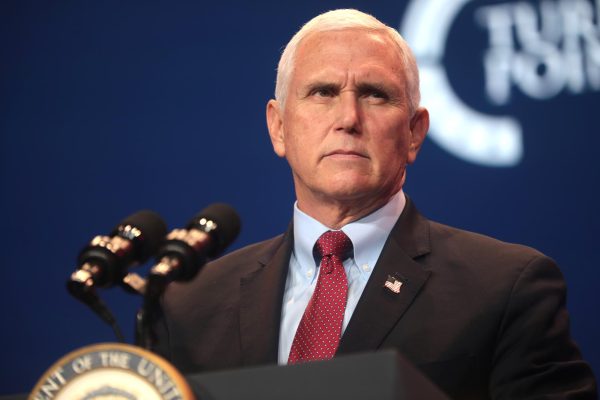
As Pence’s visit approaches, the controversy surrounding his appearance seems likely to continue. Students will have the opportunity to decide for themselves whether they want to attend, protest or simply reflect on the importance of engaging with opposing viewpoints.
Ultimately, Volety’s message to students is clear: engagement with a broad range of perspectives is essential to their academic and personal growth. “At the end of the day, I hope students will see this lecture as part of UNCW’s commitment to creating a campus culture that supports the principles of free expression, encourages the exchange of different ideas and values a wide range of perspectives.”
“Don’t let your views on any one speaker or one event color your collegiate experience overall,” said Volety.
With a full calendar of lectures, events and activities, students are encouraged to dive into the wide array of opportunities that can help shape their educational journey.
While upcoming speakers for events like “Dare to Learn” and other departmental series are still being finalized, Chancellor Volety welcomes suggestions and feedback at any time. Students can reach out to him via email at [email protected] with ideas or concerns.
For more information on UNCW’s Freedom of Expression policies, visit uncw.edu/freedomofexpression.



